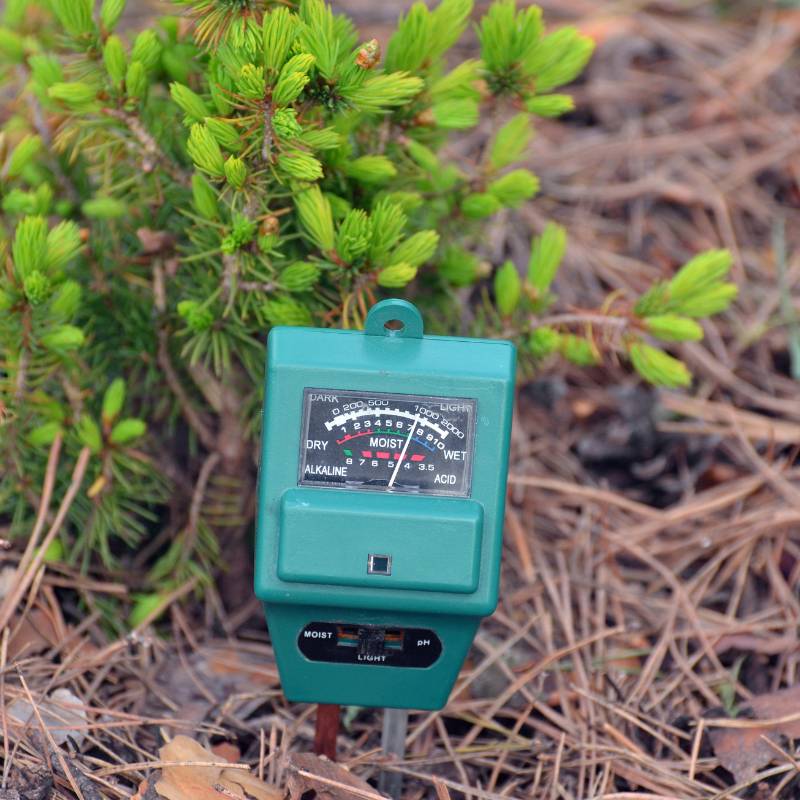Maintaining the correct pH level in your soil is crucial for the health and growth of your plants. Most soils will sit at a pH between 5.0-7.5, dependent on how acidic or alkaline the plant needs it to be. If the soil becomes too acidic, it can be detrimental to the life of a plant, stifling its growth and creating nutrient deficiencies. There are different ways this can occur that often have quick fixes but must be identified before it becomes too late.
For you to gain a better understanding, we have outlined what factors can affect the pH of soil and how you can measure and increase the pH if it is not at your plant’s optimal level.
Contents
What Can Affect the pH of Soil?
Several factors can have an impact on the pH of soil products, one of them being the parent material it was formed from. If your soil was derived from limestone it tends to be more alkaline, whereas if it was derived from granite it is more acidic. This is an important factor to consider when looking for soil for your plants. Alternatively, adding large amounts of organic matter such as peat moss to your soil can increase the acidity over time, so is something to compensate for.
The climate a plant lives in also affects the pH of the soil. Regions with higher levels of rainfall will have more acidic soil because it extracts alkaline substances from minerals. Alternatively, areas with less rainfall are more likely to contain alkaline soil due to a lack of leaching and salt accumulation.
It is important to use the right fertilisers when growing plants because ammonium-based ones can cause soil to become more acidic. Using these fertilisers freely and excessively without balancing them out over time can turn soil acidic and damage the plants. Different plants thrive in different pH levels so you should make note of this before looking to make changes, and if it is wrong, make sure to raise soil ph fast.
How Can You Measure the pH of Soil?
Before considering how you will increase soil pH, you must measure its current levels. It is vital you do this accurately, as the wrong reading can have a negative impact on the soil if you act on this incorrectly. The most accurate way of measuring the pH levels of your soil is by taking a sample and sending it to a laboratory for analysis. Soil samples would tell you the exact level of pH in your soil but does take time and cost more money.
Alternatively, you could collect a pH testing kit from your local garden centre. The kit would usually include sticks that change colour depending on the acid level. You would then compare this to the chart included to see if your soil is at the correct pH level.
Instead of using a physical test kit, you could buy an electronic pH metre to test your soil. You would insert the probe into the soil and an instant pH reading would be given. The result is definitely more accurate than a testing kit but is considerably more expensive.

How to Raise pH in Soil Organically
Once you have measured the acidity in your soil and you have an inaccurate pH level, you need to consider how you will make soil amendments to raise the pH level. The most common way to raise the pH in soil organically is by applying a material that contains lime or limestone. This is because it contains a combination of calcium and magnesium, both of which are alkaline materials which will counteract the acidity levels.s
The first way you can raise the pH in your soil is by using dolomite lime. This is commonly used by farmers and gardeners to decrease the acidity of soil but it is important to note that you shouldn’t use this material if your soil has a high amount of magnesium in it. Combining the two will stifle plant growth over time or kill them.
Adding wood ash is also recommended when raising pH levels. It should only be added to soil in small quantities to balance out the pH levels, but not make them too alkaline. The potassium and calcium carbonate will help to turn the soil back to its optimum pH level.
When looking at how to raise pH in soil organically, crushed egg shells are also good example. They contain high amounts of alkaline materials which means you can use them as a cheaper, organic fix. When introducing egg shells, you can work them into the soil or put them into compost bins which will result in a gradual release into the soil.
Premium Soil at Alsoils
At Alsoils, we sell a range of soil and topsoil products that stimulate plant growth and health. Our products can be used in a range of areas including beds & borders and vegetable patches & allotments. For more information or to enquire, please get in touch with a member of our friendly team.





